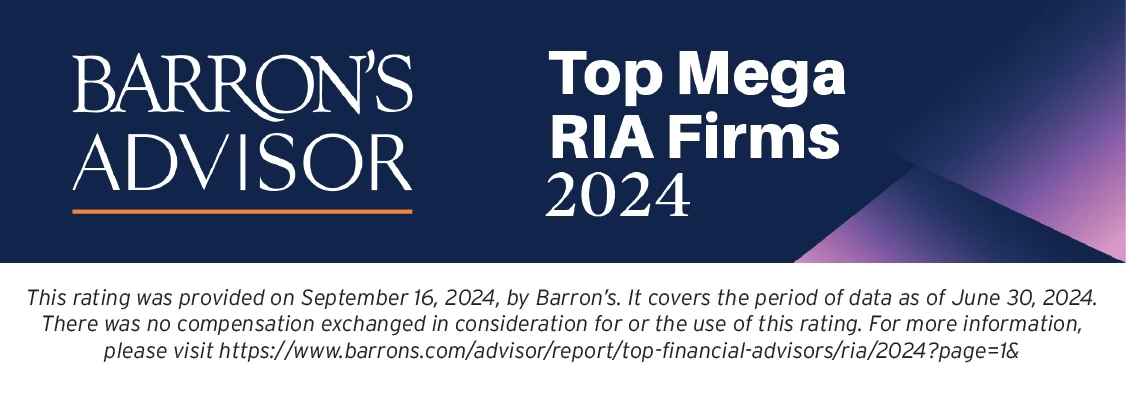Estate Planning Essentials
By Andrea Young on September 13, 2022

By Frank Censullo, MSFP
Senior Relationship Manager
Design or Default
As is often said, everyone has an estate plan. It’s just a question of whether or not you created it or settled for the one provided for you under the intestacy laws of your state of residence. Most folks don’t realize this, nor are they aware that, no matter how large or small, they do, in fact, have an estate.
When it comes to managing your personal and financial affairs, you’re likely to want to have a say in the matter, and that’s where proper planning comes into play. An estate plan need not be terribly complex or expensive, but should carefully detail your intentions in the event you are unable to communicate them.
Essential Documents
Importantly, your estate plan is not just about the distribution of property after your death. It also explains how you’d like to have your health and wealth managed for you, if necessary, while you’re still alive. Here is an overview of the essential documents that should be part of everyone’s estate plan.
- Will- Sometimes referred to as your Last Will and Testament, this document guides the disposition of your property, both tangible and intangible, after your death. In it, you’ll name an Executor who will be responsible for carrying out your wishes. You don’t have to share a copy of the will with your Executor, but it’s a good idea to let him or her know your intentions. You’ll also name a guardian for your children. Of note, having a will does not mean your estate will avoid the potentially costly and certainly public probate process. You’ll need a trust for that (see below).
- Health Care Proxy-Also known as a Medical Power of Attorney, this empowers the person of your choice to make medical decisions for you in the event of your incapacity. This person need not have medical training but should understand your preferences and, ideally, possess the ability to remain calm in the face of a health-related crisis.
- Durable Power of Attorney- Similar to a Health Care Proxy, this empowers the person of your choice to act as your agent and make financial decisions for you in the event of your incapacity. Think carefully about you and your family’s financial affairs: you’ll want to pick someone capable of managing them in the event you’re unable to do so.
- Living Will- Also known as an Advance Directive, this allows you to document your wishes with respect to extraordinary life-saving efforts that could potentially be taken in order to prolong your life. It alleviates some of the emotional burden that might otherwise be placed on your loved ones and ensures your end-of-life will proceed in a thoughtful and dignified manner.
- HIPAA Release- HIPAA refers to the Health Insurance Portability and Accountability Act of 1996. A signed release allows your health care providers to communicate with family members, friends, or anyone else you designate about your medical situation. Don’t forget: once your children reach the age of 18 and go off to work or school, they will be treated as adults by health care practitioners and will enjoy the same privacy rights as you. They’ll need to sign HIPAA releases of their own if they want to grant you access to their medical information.
Thinking Ahead
As many people do, you’re likely to name your spouse as your Executor and/or agent, but be sure to name competent successors. In the event of a tragic accident involving both of you, your hand-picked successor will then be called upon to act. name competent successors.
Understanding Probate
As alluded to earlier, probate is the process by which your will is affirmed by a judge, and your Executor is empowered to act on your behalf. It is a public process (raising privacy concerns for some families) that can take several months to complete and can be costly, particularly if your will is contested. Any costs will be borne by your estate.
What about a Trust?
In order to mitigate the complications of probate, you might choose to utilize a trust. A trust is a written legal agreement that designates who (one or more trustees) will be responsible for managing and, ultimately, distributing the assets you put into it. Trusts fall into one of two basic categories: revocable and irrevocable. As you might expect, a revocable trust can be changed (or even revoked) during the life of the person who created it. Irrevocable trusts, on the other hand, can only be changed in certain limited ways (such as who serves as trustee).
When you fund a revocable trust, you retain control (you can be the sole trustee of your own revocable trust) of the assets and have unfettered access to them. As a result, the assets remain part of your estate but will not be subject to probate. A properly written irrevocable trust, on the other hand, is a separate legal entity. Any assets contributed to such a trust are removed from your estate and, to a certain extent, from your control. They will thereafter be managed according to the terms of the trust by your designated trustee.
Whether or not you need a trust will often depend on the size and complexity of your estate. Some families can get by without one, but others may find that by having one, they are better able to manage issues related to privacy, taxes, creditors, family dynamics, or philanthropy.
Speak with an Attorney
Of course, your particular circumstances might call for additional planning and/or documentation, and we recommend you consult with a qualified estate planning attorney. If you don’t have one, we can refer you. There is a cost, to be sure, but you’re likely to find the peace of mind that comes from knowing your affairs will be settled according to your wishes will be well worth it.
Disclosure
Lexington Wealth Management is a group comprised of investment professionals registered with Hightower Advisors, LLC, an SEC registered investment adviser. Some investment professionals may also be registered with Hightower Securities, LLC, member FINRA and SIPC. Advisory services are offered through Hightower Advisors, LLC. Securities are offered through Hightower Securities, LLC. This is not an offer to buy or sell securities. No investment process is free of risk, and there is no guarantee that the investment process or the investment opportunities referenced herein will be profitable. Past performance is neither indicative nor a guarantee of future results. The investment opportunities referenced herein may not be suitable for all investors. All data or other information referenced herein is from sources believed to be reliable. Any opinions, news, research, analyses, prices, or other data or information contained in this presentation is provided as general market commentary and does not constitute investment advice. Lexington Wealth Management and Hightower Advisors, LLC or any of its affiliates make no representations or warranties express or implied as to the accuracy or completeness of the information or for statements or errors or omissions, or results obtained from the use of this information. Lexington Wealth Management and Hightower Advisors, LLC assume no liability for any action made or taken in reliance on or relating in any way to this information. The information is provided as of the date referenced in the document. Such data and other information are subject to change without notice. This document was created for informational purposes only; the opinions expressed herein are solely those of the author(s) and do not represent those of Hightower Advisors, LLC, or any of its affiliates.
FYI Categories
Events Series
Lexington Wealth Management is a group comprised of investment professionals registered with Hightower Advisors, LLC, an SEC registered investment adviser. Some investment professionals may also be registered with Hightower Securities, LLC (member FINRA and SIPC). Advisory services are offered through Hightower Advisors, LLC. Securities are offered through Hightower Securities, LLC.
This is not an offer to buy or sell securities, nor should anything contained herein be construed as a recommendation or advice of any kind. Consult with an appropriately credentialed professional before making any financial, investment, tax or legal decision. No investment process is free of risk, and there is no guarantee that any investment process or investment opportunities will be profitable or suitable for all investors. Past performance is neither indicative nor a guarantee of future results. You cannot invest directly in an index.
These materials were created for informational purposes only; the opinions and positions stated are those of the author(s) and are not necessarily the official opinion or position of Hightower Advisors, LLC or its affiliates (“Hightower”). Any examples used are for illustrative purposes only and based on generic assumptions. All data or other information referenced is from sources believed to be reliable but not independently verified. Information provided is as of the date referenced and is subject to change without notice. Hightower assumes no liability for any action made or taken in reliance on or relating in any way to this information. Hightower makes no representations or warranties, express or implied, as to the accuracy or completeness of the information, for statements or errors or omissions, or results obtained from the use of this information. References to any person, organization, or the inclusion of external hyperlinks does not constitute endorsement (or guarantee of accuracy or safety) by Hightower of any such person, organization or linked website or the information, products or services contained therein.
Click here for definitions of and disclosures specific to commonly used terms.

Sign up for LWM Communication
Office
12 Waltham St
Lexington, MA 02421
Phone: (781) 860-7745
Fax: (781) 207-0253

Securities offered through Hightower Securities, LLC, Member FINRA/SIPC, Hightower Advisors, LLC is a SEC registered investment adviser. brokercheck.finra.org ©2026 Hightower Advisors. All Rights Reserved.
Legal & Privacy | Web Accessibility Policy | Our ADV
Form Client Relationship Summary ("Form CRS") is a brief summary of the brokerage and advisor services we offer.
HTA Client Relationship Summary
HTS Client Relationship Summary